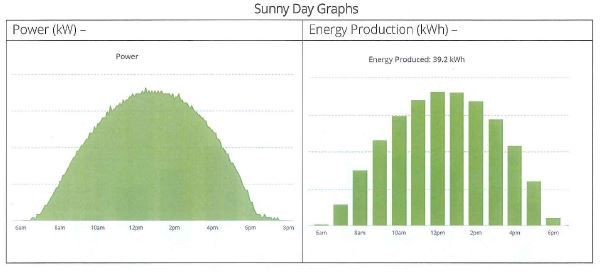So long as panels aren t.
How does cold temp affect solar panels.
Solar panel temperature coefficient.
Generally speaking solar panels are 20 c 36 f warmer than the ambient temperature.
As for harsh winters cold temperature can actually improve solar panel output and white snow can reflect light and improve photovoltaic performance.
Do solar panels work in the winter.
The temperature coefficient tells us the rate of how much will solar panel efficiency drop when the temperature will rise by one degree celsius 33 8 f.
Top rated solar panels are engineered to withstand winds of up to 140 mph.
The angle of panels may need adjustment to a higher angle in winter to capture more light.
The temperature refers to the actual material temperature and not the air temperature so on a sunny day it s not that unusual for a solar panel to reach 45 degrees c 113 degrees f.
Typically silicon solar cell power output drops about 0 4 percent with every degree celsius 1 8 degrees fahrenheit.
1 cold weather prevents solar panels from heating up solar or pv cells work by converting sunlight directly into electricity.
If you have solar panels with an efficiency rating of 17 percent and a temperature coefficient of 0 45 they will lose 0 45 of their efficiency for every degree above 25 c.
A common myth is that solar panels do not work during winter.
If the surface temperature of your roof increases to 30 c 86 f your solar panel s efficiency will fall to 16 7 percent.
More specifically high winds snow and cold temperatures shouldn t be a concern.
Their name is derived from the process of conversion in which photons light is transformed into an electrical voltage.
Interestingly the cold temperature will typically improve solar panel output.
Colder temperatures enhance energy production efficiency increasing the daily amount of electricity produced despite fewer daylight hours.
Solar panels create electricity from the sun s light not the sun s heat.
Solar panels are designed to attract the sun s rays and trap them.
How cold air affects your solar panels cold ambient air can also affect your solar panel s output although not in the same fashion as warm air.
So even a glimmer of sunlight can cause the solar panels to start warming up and hence hasten the melting of snow around it.
The white snow can also reflect light and help improve pv performance.
The positive effects of low temperatures on solar panel power production in colder climates can be countered by clouds and snow that decrease solar panel efficiency.
Winter will only hurt solar production if the panels are covered with snow.

